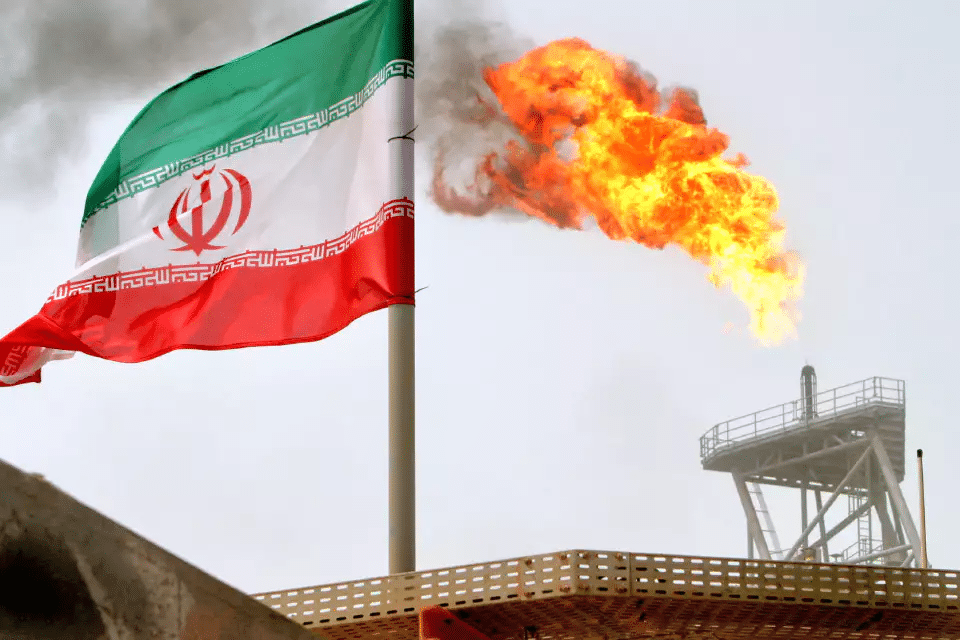It will take a few more days for the official announcement, but next week American and Iranian negotiation teams are expected to meet again to discuss Tehran's nuclear program - "simply because it has no choice," as one American diplomatic source put it.
The talks are scheduled to be held once more in Oman. As before, the Iranians are expected to insist on indirect negotiations, citing the recent American strike on their facilities. They may also push for the presence of another friendly country in addition to Oman. Russia has offered to host; the US will refuse.
During his visit to The Hague on Wednesday, President Donald Trump said: "We'll sit down with Iran in the coming days, maybe we'll sign an agreement, I don't think it's necessary. The only important thing is that there's no nuclear weapon, and we achieved that. I'm not lifting the sanctions. I can stop them if I want to, but they'll need money to get the country back on track. If China wants to buy oil, it should buy from us or elsewhere."

Trump's characteristically blunt remarks reveal the mindset in Washington regarding Iran. The core problem, nuclear weapons, has been addressed. Iran is in a dramatically different state than before the war; it's on its knees. An agreement would be critical for Iran, but is of limited importance to the US.
The American source elaborated: the regime's primary mission, survival, is now under serious threat. Post-war Iran is in a significantly worse economic state due to massive spending, widespread destruction requiring reconstruction, a paralyzed economy, and, as reported in Israel Hayom, a 95% drop in oil exports. The resulting revenue loss is estimated at around $5 billion.
The continuation of crippling sanctions means the regime has no realistic path to economic recovery. If there's any real chance of regime change in Iran, it lies in the dire economic situation. The main opposition comes from working-class sectors, truck drivers, teachers, taxi drivers, industrial workers, whose wages have eroded. A majority of households (60%) have already fallen below the poverty line. Therefore, said the source, Iran has no choice, and concessions that were previously met with firm rejection may now be on the table.

The oil sector is a critical issue. China, the main buyer of smuggled Iranian oil, already secured alternative sources during the two-week war, primarily from Saudi Arabia, but also Russia. It's not clear if it will return to buying Iranian oil at previous levels, mainly due to the difficulty of "laundering" Iranian oil and the US sanctions imposed on Chinese refineries.
Trump's repeated statements that China can buy oil from the US are a clear and provocative threat to Iran's main economic lifeline. The US has ample domestic markets for its oil. The suggestion that China buy from Washington is meant purely to underscore Iran's vulnerability.
Still, there are carrots as well as sticks. According to two American officials, during wartime contacts between US envoy Steve Witkoff and Iranian Foreign Minister Abbas Araghchi, Iran was offered economic recovery frameworks, which is why it is now willing to come to the table.
The US idea now is that with most of Iran's military nuclear program dismantled, it only needs to ensure Iran doesn't rebuild it, a much easier task. At the same time, it will be much harder for Iran to resume its nuclear trajectory. Despite defiant rhetoric, it may postpone any such moves in hopes of securing a lifeline that could save it from economic collapse.
Iranian Parliament Speaker Mohammad Ghalibaf declared that Iran would renew and accelerate its civilian nuclear program. This, too, requires oversight. As is often the case with Iranian officials, Ghalibaf's statement is notable for what it omits: there is no mention of rebuilding military sites, namely, the high-grade enrichment facilities and weaponization infrastructure at Isfahan, Fordow and other locations.
According to American sources, envoy Steve Witkoff will present Iran with proposals for gradually lifting some sanctions, depending on the scope of Iran's agreement to allow oversight of its remaining nuclear facilities.
Additionally, the US will offer Iran assistance in rebuilding civilian infrastructure, such as water supply systems, and healthcare support. However, the American officials stressed that these offers would only materialize if Iran agrees to restrictions and oversight ensuring it cannot develop nuclear weapons.
They also noted that issues such as ballistic missiles and support for terrorist organizations like Hezbollah are important, but will likely be addressed in a separate format. Israel has demanded that these topics also be raised, but this may only happen, if at all, at a later stage.





